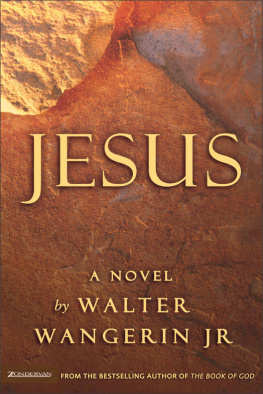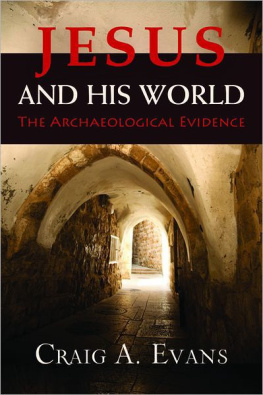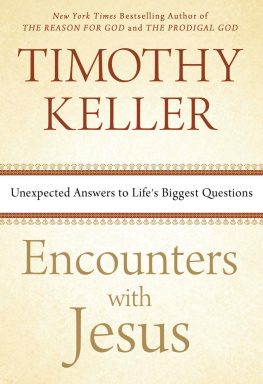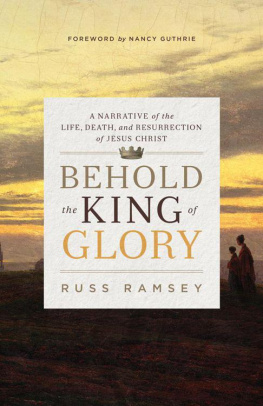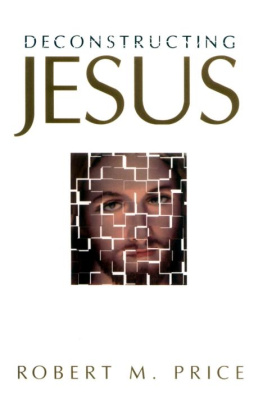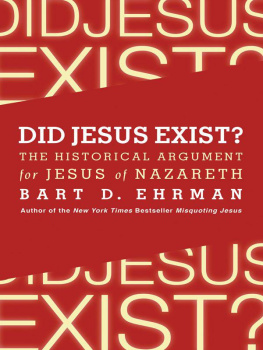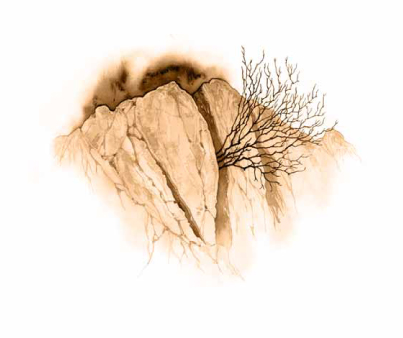
I am standing on the high south side of a rugged defile, a wadi which cuts a long descent through cliff-stone to empty its waters into the Dead Sea. The Salt Sea. I am not so far from the sea that I cannot see its waters off to my right. There is a hard wind blowing from north to south down the gullet of the sea, causing armies of waves to roll and rise and break into whitecaps. They crash in triumph and defeat.
It is late in the afternoon.
I spent the morning among the Essene community whose people sleep severally in caves and underground rooms and tents in this wilderness. But they gather in a large building to study and to write, and always they eat together, declaring their meals to represent and to celebrate the new world coming. I saw the tables at which they write and the ink pots and the clay jars in which they keep their scrolls. I saw their wheels and kilns and the pottery these produced. They catch water from the wadi to keep in pools, to drink, to wash. They bathe often. They baptize unto the purity of their persons.
I listened to their teachings, particularly their expectation of the end when they shall be shown to be the true Israel, and false priests and powermongers shall be dismissed and displaced.
And then I came apart to this place, the south side of a falling gorge Ive stood for half the afternoon in my own frowning and hollow meditations. I think of nothing. I can consider no thing within my heart. My heart is empty, grieving me, causing me to breathe with something like a panic.
But suddenly, thereto my right, far off and down where the wadi meets the shore of the Great Salt Sea, but flying this way between the walls of the gorge, ascending higher and higher along its floor and filling the defile with the sound of its own wind, the wind of her great wings beatingcomes an eagle.
I am standing at the very edge of her long approach! I watch her magnificent ascent, her bright adventing here, and my breathing grows deeper: she is coming straight toward me! I see the motion of her flight; she rows the wind; her wings sweep forward and backward low, and her neck gives a little lunge with each rowing, and there is astonishing strength in her breast and shoulders, and her beak is hooked and terrible with danger.
And then there is a moment when she is but ten feet in front of me, passing me at my level exactly; and though she does not turn her head, her single eyeyellow, fixed, sharpened by a bony browsees me. The eagle looks at me. She does not stop flying by. Nevertheless, it seems to me that this moment lasts and lasts, and I cannot draw a breath, and in the eagles eye is the sun and the sky and all creation and God in the still, black center, the pupil of the eagles eye, and all are staring straight at me. I am no longer a secret on the face of the earth, a man sneaking from here to there whom no one notices. I am known! The earth and the heavens, they know me! In her eye I see that the eagle must even know my name and, by the gaping of her beak, will shortly scream my name, and this terrifies me. For shall my name be screamed in judgment or in blessing? And what shall be my name when it resounds to the four corners of the world?
But then I realize that the eagle has flown on, higher and higher off to my left, unto the horizon of the evening, into the dying sunlight, where she seems to burn like golden fire and turn to bronze.
THE SON
OF GOD

THE ROOM
Z echariah and his son, John, had preceded the rest of the families by ten days to the city of Jerusalem. Indeed, all the able-bodied priests in Palestine, and all the Levites too, arrived in the Holy City some few days ahead of the worshipers: they had to prepare themselves for their sacred service, and then to prepareto purifythe Temple and its precincts for the remembrance of the Passover and the Feast of Unleavened Bread. More than one hundred thousand pilgrims would pour into a city whose normal population was thirty thousand. Jerusalem, swelling four times its size, required the services of all twenty-four divisions of priests and all the weekly courses of Levites, a workforce of eighteen thousand men.
Zechariahs division was the eighth, that of Abia out of the hill country of Judea. It lay closer to Jerusalem than most of the others. Nevertheless, Zechariah left home a full week earlier than priests from regions more distant than his. He had reasons. He had purposes. But, though the man was pious truly, piety was not one of those purposes.
Zechariah had grown most old. His eyes had hardened into a pearl-white and staring blindness. The last time Mary had seen himand this a year agoshed suffered pity for those eyes overhung by great bushes wild and uncut; pity, too, for his shoulders, bent at right angles to his spine, driving his face forever toward the ground. She had known him old and strong, the man now old and stooped. Travel was hard on him, even when he crouched upon his little donkey and was held in place by the hand of his son. For this reason Zechariah had left early with John, who was old enough to know the way, to lead the donkey, to find both food and drink for his father, to arrange places of rest every other hour in the day. The boy had turned thirteen just eight months ago. Hed attained the age of a man.

